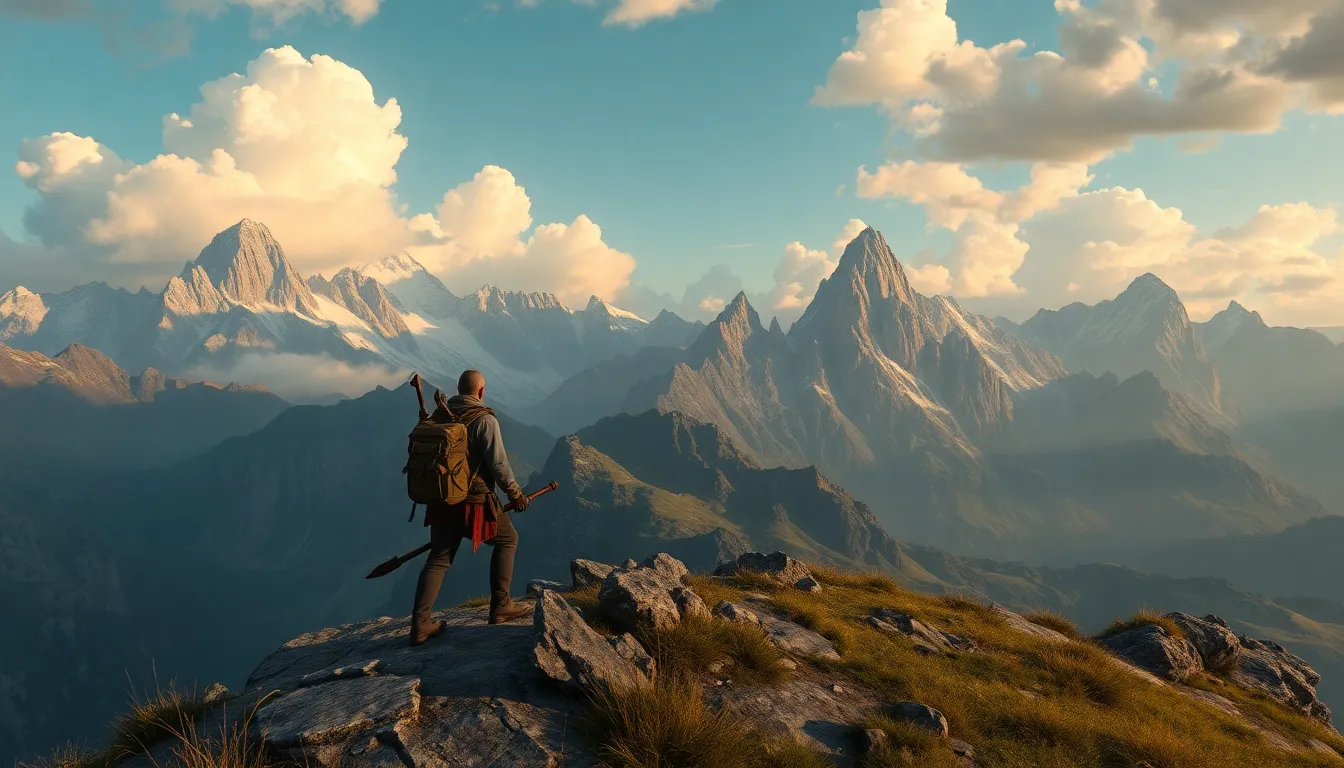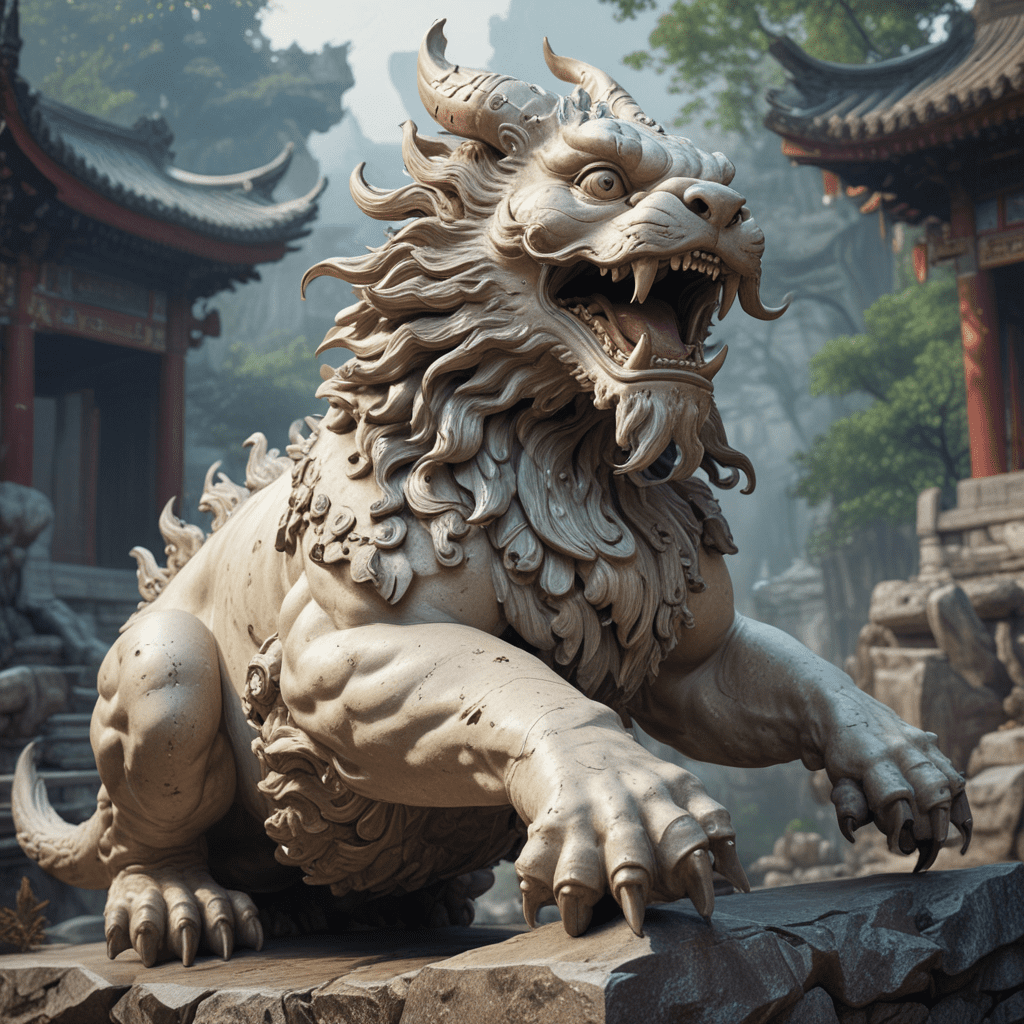The Enchanted Escapades: Myths of Adventurers in Mythical Mountains
I. Introduction to Mythical Mountains
Mythical mountains have always held a significant place in the folklore and narratives of various cultures around the world. They are not merely geographical formations; they serve as symbols of transcendence, mystery, and the divine. These mountains often represent the boundary between the earthly realm and the heavens, drawing adventurers into their folds with promises of wisdom, power, and transformation.
Throughout history, adventurers have embarked on quests into these legendary landscapes, seeking not only physical conquest but also spiritual enlightenment and personal growth. The purpose of this article is to explore the rich tapestry of myths and stories that surround these enchanted mountains, delving into their significance and the adventurers who traverse their heights.
II. The Allure of the Mythical Mountain
Mountains in mythology and folklore symbolize strength, endurance, and the challenges that one must overcome. They often embody the idea of a journey where the climber must face trials that test their character and resolve.
- Symbolism of Mountains: Mountains are frequently viewed as sacred spaces, gateways to the divine, or places of refuge and wisdom.
- Themes of Quests: Many myths involve heroes undertaking arduous journeys to reach the peaks, encountering trials that lead to personal transformation.
- Psychological Impact: The myths surrounding mountains inspire adventurers to confront their fears and pursue their aspirations, reflecting the archetypal Hero’s Journey.
III. Iconic Mythical Mountains and Their Legends
Several mountains are steeped in legend, each associated with unique myths and notable deities or figures.
A. Mount Olympus: Home of the Greek Gods
Mount Olympus, towering majestically in Greece, is renowned as the dwelling of the twelve Olympian gods. It is a place where divine and mortal realms intersect, and many myths revolve around the quests of heroes seeking the favor of the gods.
B. Mount Meru: The Cosmic Axis of Hindu and Buddhist Cosmology
In Hindu and Buddhist traditions, Mount Meru is considered the center of all physical, metaphysical, and spiritual universes. It is often depicted as a sacred mountain surrounded by other mountains, symbolizing the heart of the cosmos.
C. The Himalayas: Abodes of Deities and Mystical Beings
The Himalayas, known as the “abode of snow,” are home to various deities and revered figures in both Hindu and Buddhist traditions. They are often seen as the ultimate destination for spiritual seekers, promising enlightenment and peace.
IV. Notable Adventurers in Mythical Mountain Lore
The myths surrounding mythical mountains often feature remarkable adventurers who undergo transformative journeys.
A. The Hero’s Journey: Archetypes of Adventurers in Mountain Myths
Many myths follow the Hero’s Journey archetype, where the protagonist ventures into the unknown, faces challenges, and returns transformed.
B. Case Studies: Famous Adventurers
- Hercules: His twelve labors often led him to challenge various mythical beasts and confront his own limitations.
- Gilgamesh: In his quest for immortality, he journeyed to the Cedar Forest, confronting divine beings and testing his strength.
C. Gender Representation: Male vs. Female Adventurers in These Myths
While many myths feature male heroes, there are also powerful female adventurers, such as the goddess Durga, who embodies strength and perseverance in overcoming evil.
V. The Role of Nature and the Supernatural
The natural environment of mythical mountains is often intertwined with supernatural elements, creating a rich tapestry of adventure and mysticism.
A. The Interplay Between the Natural Environment and Supernatural Elements
Mountains are often depicted as living entities, with their own spirits and powers, influencing the fate of those who dare to approach.
B. Creatures and Spirits Inhabiting Mythical Mountains
- Yeti: The elusive snowman of the Himalayas, symbolizing the unknown and the allure of adventure.
- Fairies and Nymphs: Often seen as guardians of the mountains, guiding or hindering adventurers.
C. Environmental Challenges Faced by Adventurers
Adventurers in these myths often confront treacherous terrains, harsh weather, and mythical beasts, serving as metaphors for their inner struggles.
VI. Modern Interpretations and Adaptations
The stories of mythical mountains continue to inspire modern literature and film, shaping contemporary narratives of adventure.
A. The Influence of Mythical Mountain Stories in Literature and Film
From J.R.R. Tolkien’s Middle-earth to cinematic masterpieces like “The Lord of the Rings,” mythical mountains serve as crucial backdrops for epic tales of heroism.
B. Contemporary Adventurers Inspired by Ancient Myths
Modern adventurers often seek to connect with these ancient tales, using them as inspiration for their own quests in real-life mountainous terrains.
C. The Revival of Interest in Mythical Journeys Through Modern Storytelling
Current trends in storytelling have rekindled interest in the archetypes and lessons derived from mythical mountain adventures, blending tradition with contemporary themes.
VII. Cultural Significance of Mountain Myths Across the Globe
Mountain myths vary across cultures, each reflecting unique societal values and beliefs.
A. Comparative Analysis of Mountain Myths from Different Cultures
While the specifics may differ, many cultures share similar motifs of challenge, transformation, and divine interaction within their mountain myths.
B. The Role of Oral Traditions in Preserving These Myths
Oral storytelling has played a crucial role in passing down these narratives, ensuring that the wisdom of past generations continues to resonate.
C. How These Myths Reflect Societal Values and Beliefs
Mountain myths often illustrate cultural ideals such as bravery, resilience, and the quest for knowledge, highlighting the values that societies hold dear.
VIII. Lessons from Mythical Adventures
The adventures in mythical mountains offer profound moral and ethical lessons that remain relevant today.
A. Moral and Ethical Lessons Derived from Mythical Quests
Many stories emphasize the importance of integrity, courage, and the pursuit of knowledge, encouraging individuals to reflect on their values.
B. The Importance of Perseverance and Courage in the Face of Adversity
Adventurers often face overwhelming challenges, teaching us the value of resilience and determination in our own lives.
C. Insights into Personal Growth and Self-Discovery Through Adventure
These narratives inspire individuals to embark on their own quests for self-discovery, urging them to confront their fears and embrace transformation.
IX. The Future of Adventuring in Mythical Mountains
As we progress into an era dominated by technology, the essence of adventure in mythical mountains evolves.
A. The Impact of Modern Technology on Adventure and Exploration
With advancements in technology, such as virtual reality and digital storytelling, the way we experience and interpret mythical mountain adventures is changing. This technology allows for a deeper exploration of these legends, making them accessible to a broader audience.




